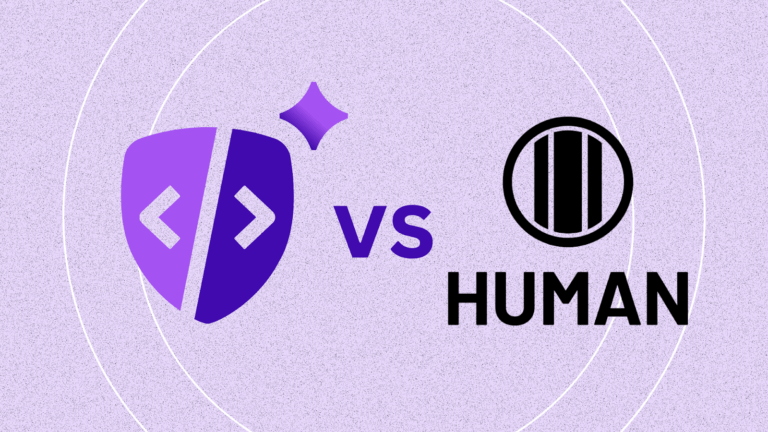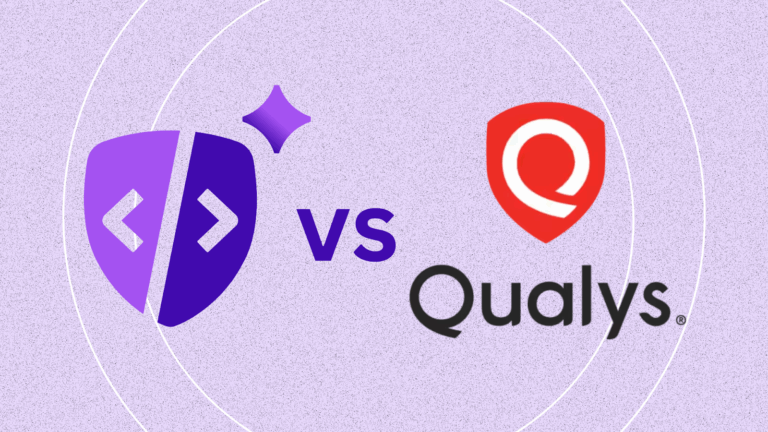Today’s PCI DSS v4.0.1 programs need external vulnerability scanning alongside client-side controls at checkout. Invicti streamlines PCI scan automation and ASV workflows for Requirement 11.3.2.
Feroot PaymentGuard AI monitors browser-side scripts in real time, automating 6.4.3 for inventory, authorization, and integrity checks and 11.6.1 for change detection with alerting. Together they map cleanly to different controls and help protect checkout end to end.
Invicti: Application security (AppSec) and PCI scan automation
Invicti is primarily a dynamic application security (DAST) and application security posture management (ASPM) platform that finds and validates exploitable vulnerabilities in web apps, APIs, and supporting infrastructure. The platform focuses on runtime scanning, proof-based validation, and compliance reports.
Key strengths:
- Vulnerabilities are validated by safe exploitation to reduce false positives.
- Can function in its PCI ASV capacity (via partner Clone Systems) and support formal PCI DSS scans and reporting.
- Provides built-in PCI, OWASP, HIPAA report templates, and can send scan results to the ASV with a click.
- Embeds directly into CI/CD workflows and popular issue-tracking systems.
Invicti is not focused on script monitoring inside a user’s browser at checkout, it focuses on scanning applications, APIs, and infrastructure for exploitable vulnerabilities.
Feroot PaymentGuard AI: Real-time client-side protection and compliance
Feroot’s PaymentGuard AI focuses on the client side (in the browser) at payment pages, iFrames, and checkout flows. It monitors every script, tag, and runtime behavior to detect unauthorized changes, data exfiltration, and injection, aligning with PCI DSS 4.0 Requirements 6.4.3 and 11.6.1.
Key strengths:
- Script inventory and authorization – tracking all scripts, third-party tags, and changes in real time.
- Tamper detection and behavior analysis – detecting malicious or unintended modifications of script logic or DOM interactions.
- Automated audit evidence – generating logs and reports mapped to requirements 6.4.3 and 11.6.1 for QSA review.
- Filling browser-level blind spots missed by server-side or vulnerability scanning tools.
Feature comparison
Compare how Feroot PaymentGuard AI and Invicti complement each other across security and compliance roles.
| Capability | Feroot PaymentGuard AI | Invicti |
| Primary focus | Real-time client-side compliance and protection of payment pages (PCI 6.4.3 & 11.6.1) | Dynamic scanning of web apps, APIs, and infrastructure; application security posture and vulnerability validation |
| Security layer addressed | Browser/client side during checkout | Application layer, API, backend, and external interface layers |
| Main threat coverage | Script injection, tampering, unauthorized DOM changes, data exfiltration from browser | SQL injection, cross-site scripting, API flaws, insecure configurations, zero-day logic vulnerabilities |
| PCI DSS capability | Automates client-side compliance with 6.4.3 & 11.6.1, produces audit logs and evidence | Supports PCI requirement 11.3.2 (external scanning), provides compliance reports and ASV integrations |
| Evidence and audit readiness | Logs, change tracking, audit-ready output specific to script behavior | Scans, formal PCI compliance reports, audit-level vulnerability reports, proof-of-exploit output |
| Implementation time | 24-hour deployment | Several weeks |
| Best for | Teams needing client-side PCI 6.4.3/11.6.1, real-time script monitoring, 24-hour rollout, QSA-ready evidence, works with any CDN/WAF. | Teams prioritizing PCI 11.3.2 external scanning and ASV workflows, CI/CD integrated DAST for web apps and APIs, proof based validation at scale. |
When to Choose Each Solution
Choose Feroot PaymentGuard AI first if:
- You need to achieve PCI DSS 4.0.1 Requirements 6.4.3 or 11.6.1 compliance (mandatory as of March 2025)
- You’ve failed a recent PCI audit due to client-side security gaps
- You have third-party scripts or marketing tags on payment pages
- Your QSA identified gaps in client-side monitoring during your last assessment
- You want rapid deployment (24 hours) with minimal IT resources
- You need automated script inventory and tamper detection for payment pages
Choose Invicti first if:
- You need dynamic application security testing (DAST) for web apps and APIs
- You require PCI DSS Requirement 11.3.2 compliance (external vulnerability scanning)
- You need ASV-certified scanning for formal PCI compliance
- You want proof-based vulnerability validation to reduce false positives
- You’re integrating security testing into CI/CD workflows
- You need to discover and remediate exploitable vulnerabilities in your application layer
Deploy both solutions when:
- You need comprehensive PCI DSS 4.0.1 compliance across all requirements
- You’re a Level 1 or Level 2 merchant with high transaction volumes
- You’re implementing PCI DSS 4.0.1 compliance from the ground up
- You need visibility from application infrastructure through to browser environments
- Your security strategy requires defense-in-depth across all layers
FAQ
Does Invicti monitor client-side scripts for PCI DSS compliance?
No. Invicti focuses on dynamic application security testing (DAST), scanning web applications, APIs, and infrastructure for exploitable vulnerabilities. It does not provide the script-level monitoring and behavior analysis required by PCI DSS Requirements 6.4.3 and 11.6.1. Invicti scans your application layer for vulnerabilities like SQL injection and XSS, while Feroot monitors what individual scripts do in the browser during checkout to ensure PCI compliance. They serve different security layers.
Do I need both solutions for PCI DSS 4.0.1 compliance?
PCI DSS 4.0.1 requires both application vulnerability scanning and client-side script monitoring. Invicti satisfies application security requirements including Requirement 11.3.2 (external scanning) and provides ASV-certified compliance reports, while Feroot provides the client-side script monitoring mandated by Requirements 6.4.3 and 11.6.1. If you’re subject to PCI DSS 4.0.1, you need both application security testing and a client-side solution like Feroot for complete compliance.
How quickly can I deploy Feroot PaymentGuard AI?
Most customers are monitoring production payment pages within 24 hours. Deployment involves adding a lightweight JavaScript tag, no infrastructure changes required. Feroot’s “set and forget” approach means the AI immediately begins learning approved script behavior, and you can enable automated blocking within 24 to 48 hours. Minimal ongoing maintenance required after initial setup.
How PaymentGuard AI and Invicti work together
Invicti helps you find vulnerabilities in your web apps, APIs, and infrastructure, validates them, and supports PCI scan compliance workflows. But it cannot observe or block what happens inside the user’s browser when a customer is entering card data.
Feroot’s PaymentGuard AI fills that gap by guarding the browser environment where PCI 6.4.3 and 11.6.1 operate. It ensures any script executing in checkout flows is safe, authorized, and monitored.
When you combine the two:
- Invicti gives you application-layer confidence, scanning for exploitable vulnerabilities and supporting PCI reporting.
- PaymentGuard AI gives you client-side assurance, detecting hidden script-level risks in real time.
Summary
Feroot PaymentGuard AI protects the client side of payment pages by monitoring browser scripts in real time and automating PCI DSS 4.0 compliance for Requirements 6.4.3 and 11.6.1. Invicti focuses on the application and API layer, helping teams find and validate vulnerabilities through dynamic scanning and proof-based testing while supporting PCI scan requirements. Used together, Feroot secures what happens in the browser, and Invicti secures what happens in the code and infrastructure, providing complete coverage for PCI DSS 4.0 compliance and web application security.
See how PaymentGuard AI automates compliance, book your free demo today.


